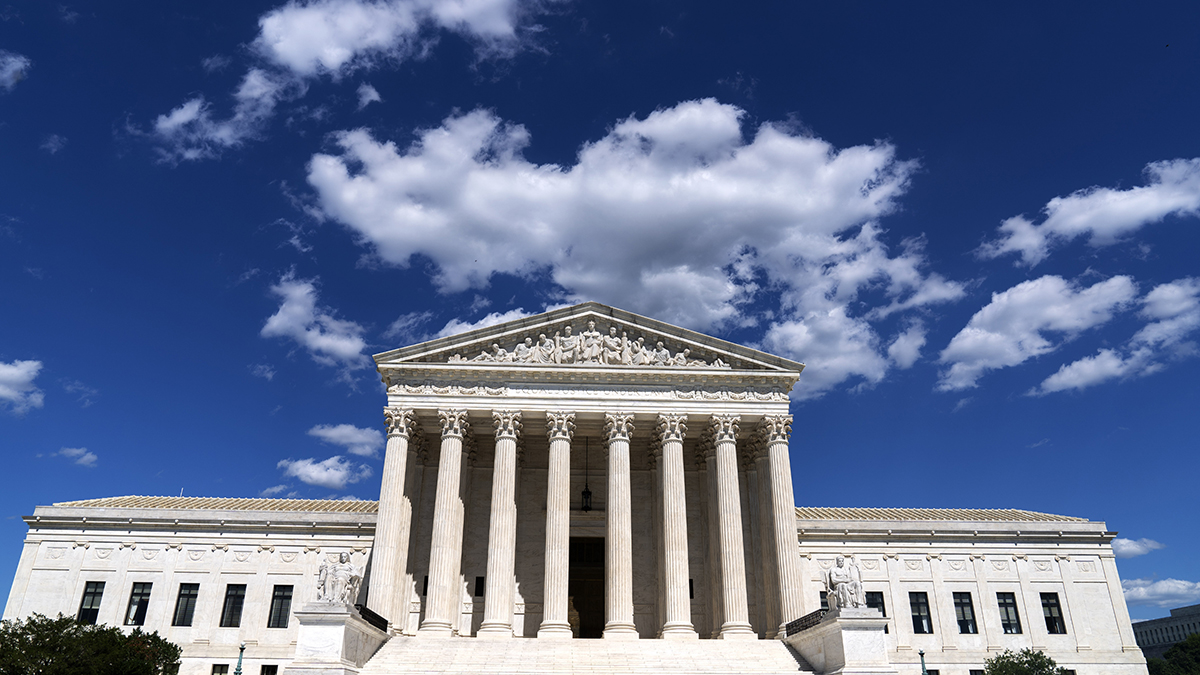The big freeze resulting from an Arctic weather phenomenon known as the polar vortex has affected 187 million Americans — more than half the country's population. It was loosening its grip Wednesday, but was sure to leave a lasting mark.
Freezing temperatures hit all 50 states and 26 states recorded sub-zero temperatures due to the vortex, which scientists described as a moving pool of extremely cold air tens of thousands of feet in the earth’s atmosphere.
The record-shattering system pushed as far south as Georgia and Alabama and was blamed for at least 17 deaths, according to counts by NBC News and The Weather Channel.
Here’s what we’ve learned as a result of the rare chill:
The polar vortex exposed vulnerabilities in the U.S. economy -- and pipes everywhere
The vortex could cost up to $5 billion, NBC News reported. Why the huge price tag? Millions of Americans haven’t been able to travel to work, go shopping or vacation. Many may also have to pay more for their heating bill.
Blood supplies were at critical levels, The American Red Cross said, because about 240 blood drives had to be canceled in 23 states by Tuesday afternoon due to severe weather.
U.S. & World
The bitter cold created some serious plumbing problems. It caused water pipes to burst Tuesday at Washington-Reagan National Airport, spilling into the baggage area. Pipes also burst at George Washington University Hospital, flooding 33 patients’ rooms, NBC Washington reported.
The deep freeze caused problems in the air, too. An American Airlines flight from Dallas-Fort Worth International Airport to Baltimore Washington International made an emergency landing Tuesday afternoon after a water pipe in the lavatory burst mid-flight, soaking some of the flight's 140 passengers.
Even polar bears found it too cold
Chicago was so frigid Monday, that the city’s Lincoln Park Zoo kept its polar bear Anana indoors, NBC Chicago reported. A zoo spokeswoman said that while the below-zero weather might be similar to what polar bears experience in the wild, Anana doesn't have a thick layer of fat that bears typically get from eating seals and whale carcasses.
The sub-zero temperatures proved deadly for a peacock that spent 90 minutes outside after escaping a suburban Chicago zoo. It flew out of his heated pen and rescuers found the peacock's feet frozen to a nearby tree branch.
But a couple of snow leopard cubs caught on camera playing in the snow at New York City's Central Park Zoo Friday didn't seem to mind the frigid air.
It only takes a few minutes to get frostbite
With -5 Fahrenheit and a wind speed of 35 mph making it feel like -34 Fahrenheit, it only takes about 10 minutes for exposed skin to get frostbitten, according to the National Weather Service. That can lead to amputations.
Hypothermia, when a person's total body temperature gets below 96 degrees Fahrenheit, can lead to unconsciousness or cardiac arrest. People were warned to watch out for signs of hypothermia, including uncontrollable shivering, weak pulse, disorientation, incoherence and drowsiness, and frostbite, including gray, white or yellow skin discoloration, numbness and waxy feeling skin.
Experts say a hat, face protection, mittens rather than gloves, layers of dry clothing are required to effectively guard against the intense cold.
The freezing conditions in Kentucky led an escaped prisoner to turn himself in on Monday. Robert Vick escaped from a minimum security facility in Lexington on Sunday, according to The Associated Press, but as the temperatures plunged to single digits the next day, he walked into a motel and asked the clerk to call the police because he wanted to get out of the cold. He was wearing only his prison-issued khaki pants, shorts and jacket when he escaped.
Polar Vortex really exists
Conservative radio host Rush Limbaugh made headlines Monday when he called the phenomenon a "hoax" and accused the media of making it up to promote the left's global warming agenda.
Real estate mogul Donald Trump also inserted himself into the polar vortex debate, tweeting, "Record snowfall & freezing temps throughout the country. Where is Global Warming when you need it?!"
But meteorologists said the polar vortex, which normally sits over the North Pole, is a real phenomenon that has been around for years (It’s also known as a polar cyclone, polar low, frigid twister, or a circumpolar whirl). Meorologists also said global warming and climate change were never used to explain the polar vortex, but climate experts argue the phenomenon may be a counterintuitive example of global warming in action.
Hell really has frozen over
The small town of Hell, Michigan, that is. Located 60 miles west of Detroit, the town, which received its moniker on Oct. 13, 1841, was hit hard by the vortex. The official temperature on Tuesday was -4 Fahrenheit, but to one long-time resident, it felt like -30 below. Even eggs froze in the nests of backyard chicken coops, clickondetroit.com reported.
Polar Vortex didn't stop people from having fun in the cold
As much as we want it gone, the polar vortex wasn’t all misery. Some people had fun in the freezing outdooors, including one teen who jumped on a frozen trampoline. Reporters, eager to demonstrate how cold it was, performed on-air experiments. One test showed how long it took for a wet T-shirt to freeze. On average, it took about 12 minutes.
But there were also those who engaged in a riskier experiment, tossing boiling water in the cold air and watching it freeze. The Los Angeles Times counted at least 50 people on social media who reported burning themselves or their friends after trying to turn scalding water into snow. There were also several reports of people going to the hospital to receive treatment for burns.
The polar vortex has also produced some stunning photos of ice-covered Lake Michigan in Chicago as well as a striking NASA image showing the blowing snow and intensely cold air that created dangerous “white-out” conditions throughout the Midwest.
And if you ever wondered what a water gun fight looks like when it's -22 Fahrenheit outside, take a look at the video below:



